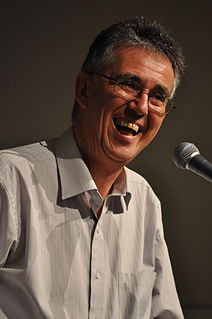A Quote by Erma Bombeck
To my way of thinking, the American family started to decline when parents began to communicate with their children.
Related Quotes
I was appalled at how children had become the focus and gravitational center of the nuclear family around which parents orbited instead of the traditional arrangement in which children orbited around their parents. This is a huge change because a critical job in early childhood is to get children weaned away from the total narcissism normal to infancy. With the children as the center of the family's actions and decisions, narcissism is at a minimum prolonged and may never significantly decline.
In the United States, the average is two children per family, while in Africa it is five children per family. On the surface, the statistic seems to indicate that Africans are having way too many kids and are taxing the Earth's resources, while American kids are born into families who are able to take care of them. However, the average American child consumes roughly the same resources as fifteen African children. So when an American family says they only have two children, they are actually consuming the resources of an African family of thirty children!
Speaking of love, one problem that recurs more and more frequently these days, in books and plays and movies, Is the inability of people to communicate with the people they love: husbands and wives who can't communicate, Children who can't communicate with their parents, and so on. And the characters in these books and plays and so on, And in real life, I might add, spend hours bemoaning the fact that they can't communicate. I feel that if a person can't communicate, the very least he can do is to shut up!
It is misleading to discuss recent changes in family life without emphasizing the fact that for generations some Americans have had to raise children under particularly appalling pressures. Although much of what is worrying American parents is shared by them all, the most grievous problems are those that especially afflict a large minority--the poor, the nonwhite and, in various ways, the parents of handicapped children.
My love for cooking began when I was young. Because my parents were in the army, they were both really busy. A lot of times I'd have to cook for the family; I'd rotate with my siblings. It started out as a chore, but as I got older, my mom started to see that I was really good at it. I became her sous chef.

































